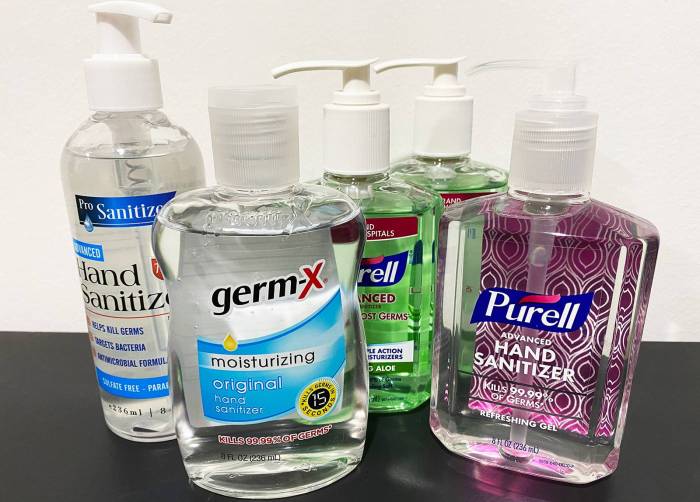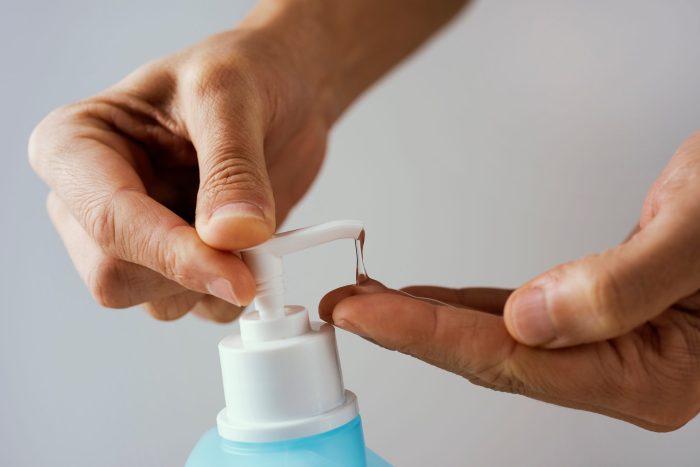Does hand sanitizer kill STDs? The answer is a resounding no, and understanding why is crucial for safeguarding sexual health. In this comprehensive guide, we’ll delve into the intricacies of STD transmission, the limitations of hand sanitizers, and alternative prevention methods to empower you with the knowledge to protect yourself and your partners.
Hand Sanitizer Composition and Properties

Hand sanitizers are topical antimicrobial products primarily designed to reduce the number of microorganisms on the hands. Understanding their composition and properties is crucial to comprehending their effectiveness and limitations.
Primary Ingredients and Mechanism of Action
The primary active ingredient in most hand sanitizers is alcohol, typically ethanol or isopropanol. Alcohol acts as a solvent, disrupting the lipid membranes of bacteria and viruses, leading to their inactivation. Other ingredients include emollients to prevent skin dryness, fragrances, and thickeners to enhance viscosity.
Limitations of Hand Sanitizers
While hand sanitizers are effective against a wide range of microorganisms, they have certain limitations. Some bacteria, such as Clostridioides difficile, and viruses, such as norovirus, are less susceptible to alcohol. Additionally, hand sanitizers may not be effective in removing dirt or other organic matter from the hands, which can harbor pathogens.
Hand Sanitizer Effectiveness against STDs: Does Hand Sanitizer Kill Stds

Hand sanitizers are not effective against sexually transmitted diseases (STDs). They contain alcohol, which can kill bacteria and viruses on the skin, but it does not work against the organisms that cause STDs.
Why Hand Sanitizers Are Not Recommended for STD Prevention
Hand sanitizers are not recommended as a primary method of STD prevention because they do not provide a barrier against the transmission of STDs. They also do not kill the organisms that cause STDs, so they cannot prevent infection.
Potential Risks of Excessive Hand Sanitizer Use
Using hand sanitizers excessively can lead to skin irritation and dryness. It can also kill the good bacteria on the skin, which can make the skin more susceptible to infection.
Alternative STD Prevention Methods
In addition to hand sanitizer, numerous effective STD prevention methods exist. Understanding and implementing these measures is crucial for safeguarding sexual health.
Does hand sanitizer kill STDs? While it’s effective against some bacteria, it’s not a substitute for proper medical care for sexually transmitted diseases. You might be more interested in the topic by the bivouac’s fitful flame . Returning to the original topic, hand sanitizer is a convenient way to reduce germs on your hands, but it’s important to use it correctly and in conjunction with other hygiene practices.
Among the most effective STD prevention methods is condom use. Condoms create a physical barrier that prevents the exchange of bodily fluids, significantly reducing the risk of STD transmission. Consistent and correct condom use is highly recommended during any sexual activity.
Regular STD Testing
Regular STD testing is essential for early detection and treatment. It enables individuals to identify and address infections promptly, preventing further transmission and potential complications.
Partner Communication
Open and honest communication with sexual partners about STD status and risk factors is crucial. This facilitates informed decision-making regarding safer sex practices and encourages partners to get tested and treated if necessary.
STD Symptoms and Treatment

Sexually transmitted diseases (STDs) are infections passed from one person to another through sexual contact. They can cause a wide range of symptoms, from mild to severe, and if left untreated, can lead to serious health complications.
Early diagnosis and treatment of STDs are crucial to prevent their spread and minimize their impact on an individual’s health.
Common STD Symptoms and Pathogens, Does hand sanitizer kill stds
| STD | Common Symptoms | Pathogen |
|---|---|---|
| Chlamydia | Abnormal vaginal discharge, burning sensation during urination, lower abdominal pain | Chlamydia trachomatis |
| Gonorrhea | Painful or burning urination, increased vaginal discharge, testicular pain | Neisseria gonorrhoeae |
| Syphilis | Chancre (painless sore), rash, fever, swollen lymph nodes | Treponema pallidum |
| Herpes | Blisters or sores on the genitals, anus, or mouth | Herpes simplex virus (HSV-1 or HSV-2) |
| HIV/AIDS | Flu-like symptoms, swollen lymph nodes, weight loss, opportunistic infections | Human immunodeficiency virus (HIV) |
It’s important to note that some STDs, such as chlamydia and gonorrhea, can be asymptomatic, meaning they do not cause any noticeable symptoms.
Importance of Early STD Diagnosis and Treatment
Early diagnosis and treatment of STDs are essential for several reasons:
- Prevent complications:Untreated STDs can lead to serious health complications, such as infertility, pelvic inflammatory disease, and even cancer.
- Reduce transmission:Early treatment can reduce the risk of transmitting the STD to sexual partners.
- Improve health outcomes:Treatment can alleviate symptoms and improve overall health and well-being.
Consequences of Untreated STDs
Untreated STDs can have severe consequences, including:
- Infertility:STDs can damage the reproductive organs, leading to difficulty conceiving.
- Pelvic inflammatory disease (PID):An infection of the female reproductive organs that can cause pain, scarring, and infertility.
- Cancer:Some STDs, such as HPV, have been linked to an increased risk of certain types of cancer, including cervical and anal cancer.
- Increased risk of HIV infection:Untreated STDs can increase the risk of contracting HIV, the virus that causes AIDS.
STD Education and Awareness

Comprehensive STD education programs are crucial for empowering individuals with the knowledge and skills necessary to protect themselves and their partners from sexually transmitted diseases. These programs should provide accurate and age-appropriate information about STD transmission, symptoms, prevention, and treatment.
Healthcare providers play a vital role in educating patients about STDs. They can initiate open and honest conversations, provide accurate information, and encourage testing and treatment. By fostering a non-judgmental environment, healthcare providers can help reduce the stigma associated with STDs and promote early detection and treatment.
Open and Honest Communication
Open and honest communication about STDs is essential for promoting prevention and early detection. Individuals should feel comfortable discussing STDs with their partners, healthcare providers, and trusted friends or family members. By sharing accurate information and dispelling myths, individuals can make informed decisions about their sexual health and reduce the risk of STD transmission.
FAQ Overview
Can hand sanitizer prevent HIV?
No, hand sanitizer is not effective against HIV or other STDs.
Why is condom use important for STD prevention?
Condoms provide a physical barrier that blocks the transmission of bodily fluids, reducing the risk of STD infection.
What are the symptoms of chlamydia?
Chlamydia often has no symptoms, but can cause pain during urination, abnormal vaginal discharge, or discomfort in the lower abdomen.